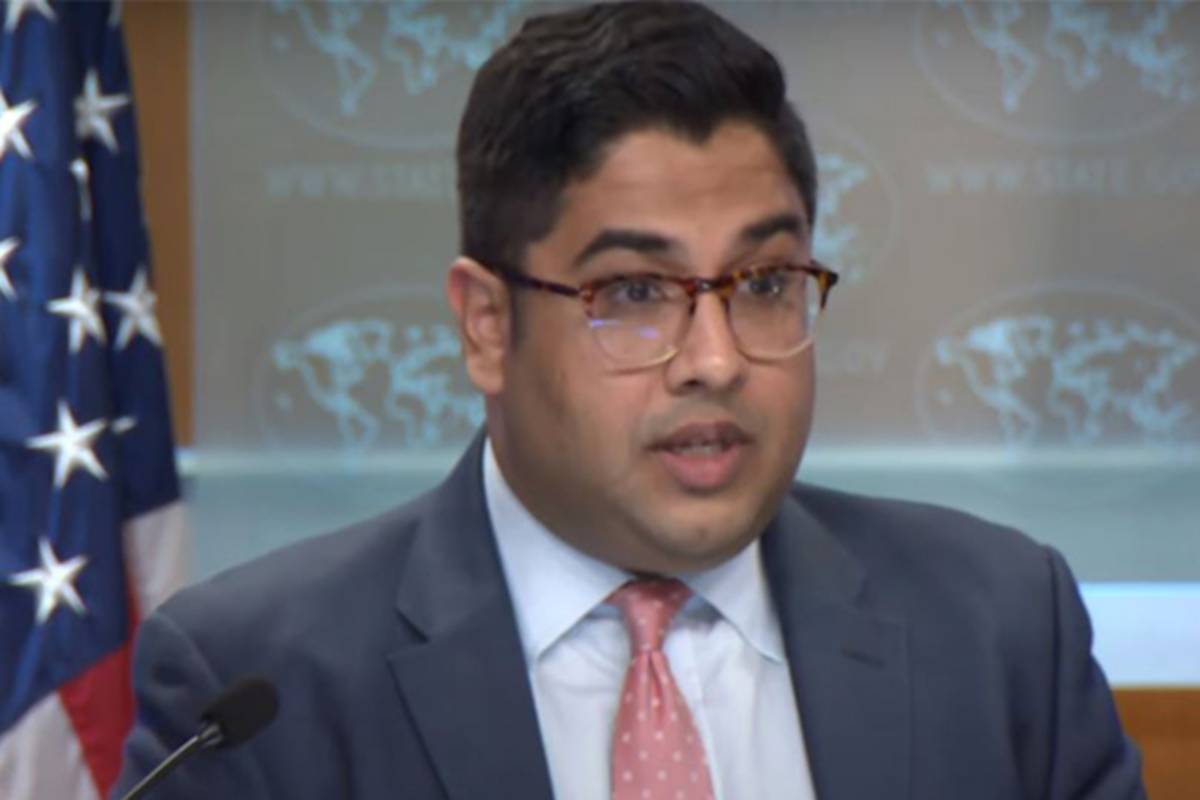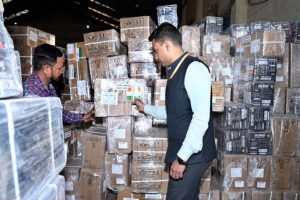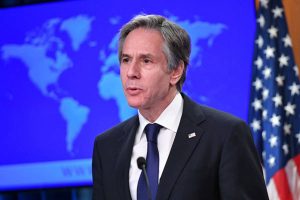The US has said that it will continue to work and have “strong positive relationship with India, Brazil and South Africa.
While addressing a media briefing on Tuesday (local time), US Principal Deputy Spokesperson Vedant Patel said that US works bilaterally with the countries in a number of key areas. He noted that US intends to manage its relationship and competition with China responsibly.
On being asked about BRICS Summit, Vedant Patel said, “We believe all countries are sovereign countries and they have their own choice and make their own choices about the countries and groupings in which that they associate. What the United States is focused on and the approach that we bring to all of the foreign policy and the diplomacy we conduct is that, we are focused on working with partners around the world to build the broadest and deepest coalitions possible to help achieve our shared goals.”
“We want to enhance the value proposition of what the United States can bring to the table and we want to work with countries through investments and in the kinds of things that we know these kinds of countries are looking for and we’re looking to sharpen and deepen and broaden our partnerships in that way. and of course the multilateral institutions whether it be the UN, G20, groupings like APEC, ASEAN of course are important and vital avenues for us to do that,” he further said.
Patel stated that US Secretary of State Antony Blinken places emphasis on continuing to engage with those nations.
Speaking about US ties with BRICS nations, he said, “You have seen the secretary place the emphasis on continuing to engage with those countries and look as it relates to this specific makeup of BRICS, we’re going to continue to work and have a strong positive relationship with Brazil, and with South Africa and India. We work bilaterally with the countries in a number of key areas, a number of key areas that we frankly think are going to continue to define the 21st century.”
“When it comes to China, our goal and our intent is to continue to manage that relationship and manage that relationship responsibly, manage our competition with China responsibly. That is what we know that the rest of the world expects of superpowers and lastly, as it relates to Russia, we will continue to push back on Russian aggression and make clear to any country on the planet it can no longer be business as usual with the Russian Federation,” he added.
The 16th BRICS Summit is being held under Russia’s chairmanship in Kazan. Ministry of External Affairs has said, “The Summit, themed ‘Strengthening Multilateralism for Just Global Development and Security,’ will provide an important platform for leaders to discuss key global issues.”
Asked about UN Secretary-General Antonio Guterres’ participation in the BRICS Summit in Kazan while not attending Ukraine Peace Summit held in Switzerland in June, Patel responded, “I will let the Secretary-General and his team speak to whatever scheduling decisions they have or have not made. I just want to be clear though Secretary-General Guterres, I think, has the UN system in itself has been an incredible partner when we were talking about holding the Russian federation accountable and making in almost as unison as one can be in the UN system, making it clear that there’s a strong collection of countries that are standing up against Russian aggression, its infringement on Ukraine’s territorial integrity, its infringement on Ukraine’s sovereignty.”
BRIC, as a formal grouping, started after the meeting of the Leaders of Russia, India and China in St Petersburg on the margins of G8 Outreach Summit in 2006. The grouping was formalized during the first meeting of BRIC Foreign Ministers on the margins of UNGA in New York in 2006. The first BRIC Summit was held in Russia’s Yekaterinburg in 2009.
It was agreed to expand BRIC into BRICS with the inclusion of South Africa at the BRIC Foreign Ministers’ meeting in New York in 2010. South Africa attended the 3rd BRICS Summit in Sanya in 2011. A further expansion of BRICS took place in 2024 with five new members – Egypt, Ethiopia, Iran, Saudi Arabia, and the United Arab Emirates.





